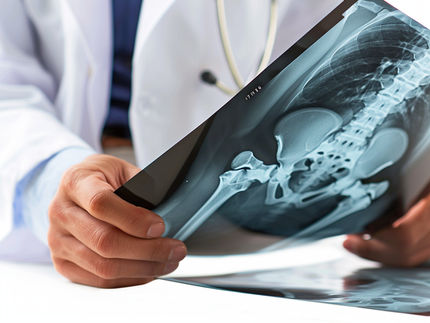Why is osteoarthritis more common among athletes?
osteoarthritis and reduced range of motion in the hip and groin are more common among athletes and other people who engage in strenuous physical activity. The cause may be microscopic injuries due to high load on the hips and subsequent joint changes. A PhD thesis at Sahlgrenska Academy studied elite soccer and hockey players.
Research has conclusively shown that back problems are common among athletes and that high loads during childhood and adolescence can lead to growth disorders and spinal injuries. These individuals are also particularly prone to hip and groin problems.
More frequent in athletes
Hip changes that progress to osteoporosis are more frequent in athletes and others who engage in strenuous physical activity.
“We compared 17 elite male soccer players and 15 elite male hockey players with 30 men who did not engage in strenuous physical activity in order to identify frequency of hip problems and radiological changes,” says Páll Jónasson, a researcher at Sahlgrenska Academy “The changes were just as common in both groups, but the athletes were more susceptible to reduced range of motion.”
Biomechanical studies
Two biomechanical studies placed high loads on porcine hips under controlled circumstances. The growth zone in the hip turned out to be the weak link.
“Microscopic injuries or fractures developed in and around the growth zone after repeated loading,” Mr. Jónasson says. “These kinds of injuries presumably give rise to growth disorders that lead to joint changes and ultimately to osteoarthritis.”
New instruments
Although young and middle-aged adults who engage in strenuous physical activity are increasingly afflicted, previous measurement tools had been designed to diagnose indications for hip arthroscopy among the elderly only.
“We have devised two instruments for younger people,” Mr. Jónasson says. “A questionnaire adapted to them is now available for use in both clinical practice and future research.”
Other news from the department science

Get the life science industry in your inbox
By submitting this form you agree that LUMITOS AG will send you the newsletter(s) selected above by email. Your data will not be passed on to third parties. Your data will be stored and processed in accordance with our data protection regulations. LUMITOS may contact you by email for the purpose of advertising or market and opinion surveys. You can revoke your consent at any time without giving reasons to LUMITOS AG, Ernst-Augustin-Str. 2, 12489 Berlin, Germany or by e-mail at revoke@lumitos.com with effect for the future. In addition, each email contains a link to unsubscribe from the corresponding newsletter.



















































